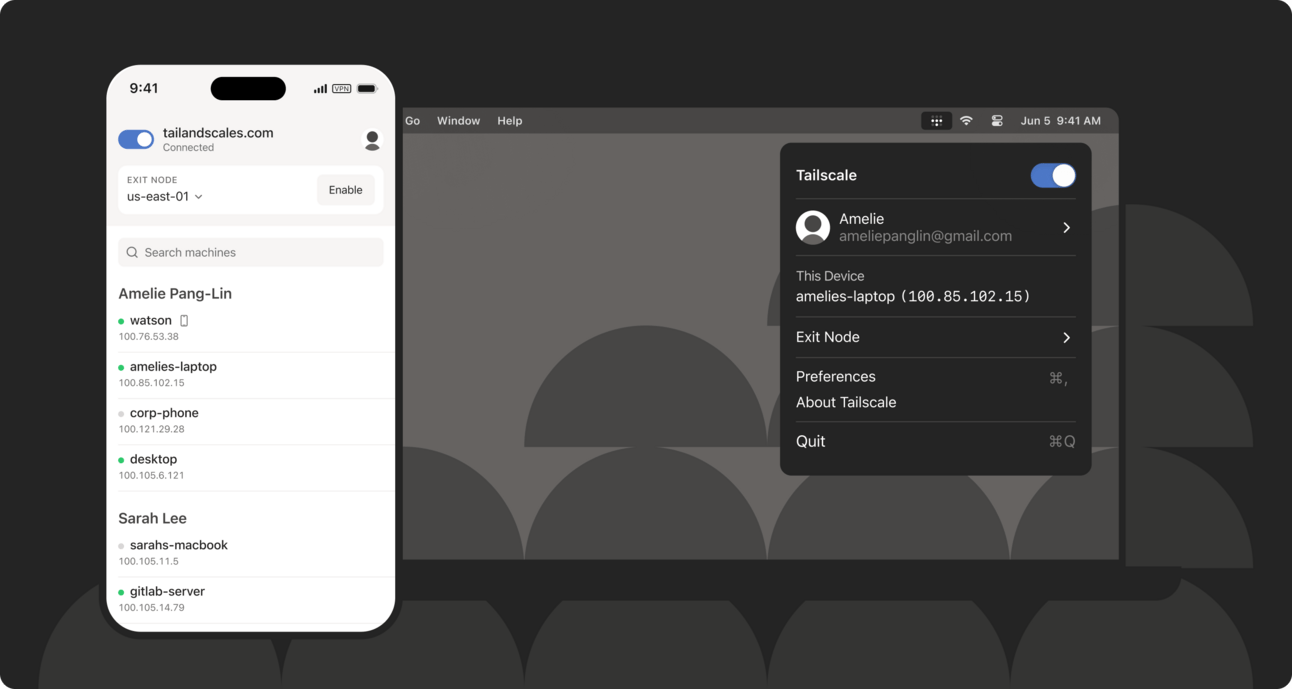- ByteSize
- Posts
- Google's Reading Your Texts, Teachers Want AI Pets, and Your Browser's Identity Theft Threats
Google's Reading Your Texts, Teachers Want AI Pets, and Your Browser's Identity Theft Threats
ALSO: Meta poaches Apple's AI talent because apparently even Apple thinks Siri is beyond salvation
It's July 15, 1983! Wait, no—it's July 15, 2025, but we’re going back in time to when Nintendo dropped the Famicom 42 years ago. You know, back when the most sophisticated AI was the duck in Duck Hunt somehow knowing exactly when you were pointing the light gun at it.
Those were simpler times—when the biggest threat to your privacy was your little brother watching you enter the Konami Code, not an AI assistant reading your grocery lists to improve its "user experience."
Google Thinks You Want Gemini Reading Your WhatsApp Like a Nosy Roommate
Ahh, those were the days… When your biggest privacy concern was whether your roommate was reading your texts over your shoulder. Well, Google just made that quaint. Starting this week, Android devices are basically handing Gemini the keys to your digital life faster than you can say "I didn't read the terms and conditions."
Unless you actively fight back, Gemini will now rifle through your WhatsApp, Messages, and Phone apps like it's Black Friday at a Best Buy. Google's email explaining this reads like it was written by someone having a stroke—simultaneously claiming the changes "will automatically start rolling out" while also saying "if you have already turned these features off, they will remain off." It's like watching someone explain Inception while drunk.
Google says human reviewers will be "reading, annotating, and processing" your data, but don't worry—they pinky promise it's only stored for 72 hours. That's just enough time for Gary from Google to screenshot your embarrassing messages and share them at the company retreat.
Trying to actually disable this nightmare involves more steps than assembling IKEA furniture blindfolded. One researcher compared it to Microsoft bolting Internet Explorer into Windows—you know, that thing that led to a massive antitrust lawsuit. But hey, at least Internet Explorer just sucked. It didn't actively spy on your conversations with your therapist.
Google's response to privacy concerns? "This update is good for users!" Which is just them saying "we're definitely not selling your data to the highest bidder, cross our hearts and hope to die in a shareholder meeting."
Teachers' Union Teams Up with AI Companies (What Could Go Wrong?)
Might as well bring a flamethrower to the library because Microsoft, OpenAI, and the American Federation of Teachers announced they're launching an AI training center. Because when I think "who should shape the future of education," my first thought is definitely "the people who created Clippy."
The National Academy for AI Instruction will open in NYC, presumably right next to the Museum of Bad Ideas and the Institute for Teaching Kids to Depend on Machines. Union president Randi Weingarten said they want to "harness" AI, which sounds less like education and more like trying to domesticate a rabid dog.
This $23 million initiative promises to train 400,000 teachers over five years, which breaks down to about $57 per teacher. That's barely enough for a decent dinner, let alone learning how to integrate technology that hallucinates more than someone on a three-day bender in Vegas.
The timing is perfect—just as schools are desperately trying to catch AI-assisted cheating, let's teach teachers to embrace the very technology that's making their jobs impossible. It's like training lifeguards to use anchors. Awesome.
Chrome Extensions: Now With 100% More Identity Theft
If you thought your browser was safe, think again. Researchers discovered almost a dozen malicious Chrome extensions with 1.7 million downloads that have been treating your browsing history like their personal Netflix queue. These extensions posed as helpful tools—color pickers, VPNs, emoji keyboards—basically anything that sounds boring enough that you wouldn't question installing it.
The malicious code wasn't even there initially. These extensions started legitimate, then got updated with spyware like a software version of pod people. The extensions tracked every website you visited and could redirect you to sketchy destinations faster than a GPS with trust issues. What makes this particularly infuriating is that many of these extensions were verified and had hundreds of positive reviews. Oh, and that some of these extensions have been removed, but many are still available. It's like playing Russian roulette, but instead of bullets, it's browser extensions, and instead of dying, you just lose your identity and life savings.
⚙️ Tool Time
Tailscale Is A VPN That Actually Works
Remember when setting up a VPN felt like performing surgery with oven mitts? Tailscale said "nah" to all that nonsense and built something that just works. ByteSize reader Christopher recommended this absolute masterpiece, and honestly, after reading about it, I'm questioning every networking decision I've ever made.
Here’s why we’re proud of our community of +400,000 IT Pros:
What Makes Tailscale Special:
Mesh networking brilliance — Instead of forcing all your traffic through one chokepoint like a digital toll booth, Tailscale connects your devices directly to each other. It's peer-to-peer networking without the sketchy file-sharing connotations.
Zero-config setup — Download it, log in, and boom—you're connected to your own private internet. No port forwarding, no firewall gymnastics, no sacrificing a printer to the networking gods.
WireGuard under the hood — Uses the Tesla of VPN protocols—efficient, modern, and makes everything else look like it was designed by caffeinated squirrels.
Works anywhere — Sketchy hotel WiFi that's been compromised more times than a soap opera character? Tailscale doesn't care. It just works while you pretend to work from your beach vacation.
NAT traversal magic — Uses advanced STUN and ICE techniques to connect devices even when they're behind multiple firewalls, because apparently breaking the laws of networking is just Tuesday for these folks.
The setup process is so simple it's almost insulting to your intelligence. Tailscale creates a mesh network so elegant, it makes traditional VPNs look like they were designed by a committee of people who hate their users. Try Tailscale here.
👨💻 Job Opportunities
Fancy being the puppet master of a global enterprise data network? Invenergy needs someone to oversee their worldwide network infrastructure while ensuring compliance with regulations that are probably written in ancient Sumerian.
Do you enjoy being the hall monitor of the tech world? This role requires a current TS/SCI with CI Poly clearance and involves testing controls, interviewing system owners, and writing "clear and concise work papers" (an oxymoron if I've ever heard one).
IDS International wants someone with Top Secret clearance to manage security at construction sites, deter "technical penetrations," and write reports with "photographic documentation." You'll be the person who ensures spies don't plant listening devices in the drywall.
PNC needs someone to lead their Identity and Access Management team. You'll be responsible for authentication strategies that keep both customers and employees from getting hacked while also preventing the one guy in accounting who still writes his password on a Post-it from causing a security breach.
🛩 Industry Moves
Epic Games and Samsung settled their app store competition case after Epic accused Samsung of cozying up to Google in exchange for "hundreds of millions of dollars." The settlement comes faster than a Fortnite victory royale, with Epic's Tim Sweeney cryptically tweeting that Samsung will "address Epic's concerns."
Meta poached Apple's head of AI models, Ruoming Pang, in what Bloomberg calls potentially the first of many departures from Apple's "troubled AI unit." This is like watching the Titanic's navigation officer jump ship to work on a different iceberg—except this iceberg has a metaverse and questionable privacy policies.
Jack Dorsey spent his weekend building BitChat, a Bluetooth messaging app that works without internet because apparently Twitter wasn't niche enough. The app connects devices up to 300 meters apart, making it perfect for coordinating with fellow doomsday preppers or finding your friends when Coachella's cell towers inevitably collapse under the weight of Instagram stories.
Fubo paid $3.4 million to settle claims of illegally sharing user data with advertisers without consent, proving that even streaming services nobody's heard of can violate your privacy with style. The settlement covers users before May 29th, which is when Fubo quietly updated their privacy policy—presumably adding the clause "we promise to ask before selling your viewing habits to the highest bidder."

Hey everyone, it's Chip! Here's what caught my attention this week:
SQL Server decimal drama: Someone needs to trim 6556.30791262700000 down to 6556.3079126 and honestly, it's giving me flashbacks to when I tried to fit my entire personality into a Twitter bio.
EVC mode mismatch mayhem: A sysadmin is trying to migrate VMs between clusters with different EVC modes, which is like trying to move between apartments when one has a different type of electrical outlet for everything.
PowerShell permissions puzzle: Someone needs to audit file permissions for a departing employee, because apparently tracking who has access to what is harder than following the plot of a Christopher Nolan movie.
…and that’s a wrap! Keep your extensions updated, your VPNs meshed, and your data locked down tighter than Fort Knox's WiFi password.
Enjoyed the news? Discuss over on Experts Exchange.
Got news to share or topics you'd like us to cover? Send ‘em our way. We can’t wait to hear from you. Really.



